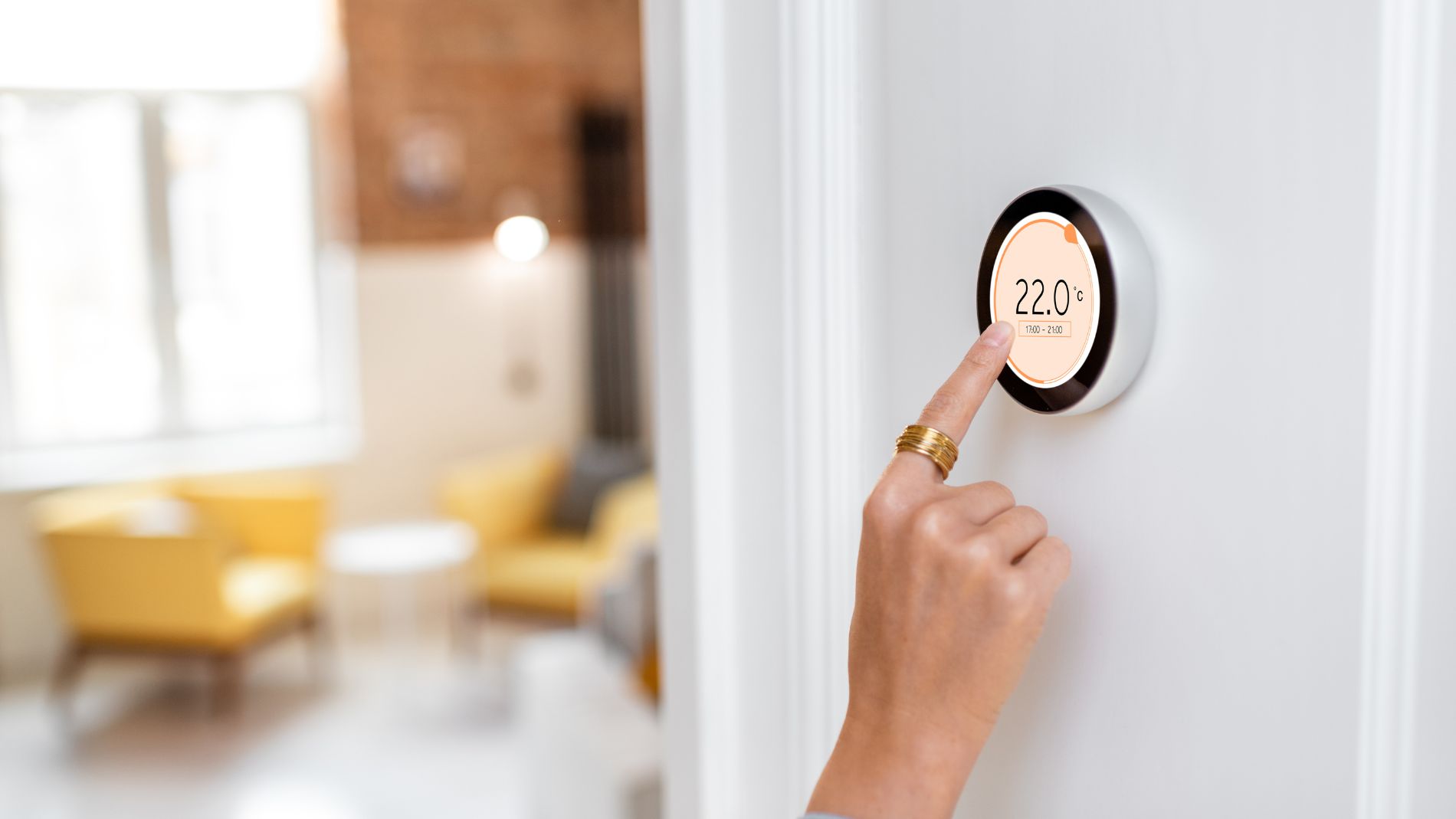Smart building controls are essential for future-ready buildings, enabling energy-efficient, eco-friendly operations and enhancing comfort and security. With AI integration, many processes become automated, optimizing energy use by learning from data and identifying consumption patterns.
Lesedauer: 3 minutes
Incorporating Renewable Energy: Smart Systems for Sustainable Energy Use

Smart home systems harness the power of the Internet of Things (IoT), enabling enhanced data exchange and analysis, combined with home and building automation, to prioritize the use of renewable energy sources like solar and geothermal energy over fossil fuels. Through complex data analysis, these systems recognize energy consumption patterns and plan energy provisioning in advance.
By identifying savings opportunities, smart building control systems help buildings operate sustainably. Studies suggest smart home systems could reduce energy consumption by up to 40%, a significant contribution to global energy transitions. For instance, smart building control can:
- Automatically adjust heating to outdoor temperatures
- Adapt lighting intensity to the time of da
- Automatically switch lighting on and off
- Automatically ventilate spaces to minimize moisture buildup
Future-Proofing Buildings: Age-Friendly and Accessible Smart Controls
Smart building control systems not only focus on energy efficiency, but also prioritize user comfort. By making buildings age-friendly and accessible, they ensure future-proof adaptability. Automatic control of systems like heating can reduce user effort while maximizing comfort. Additionally, sensor-controlled door and window systems enhance ease of access. Integrating voice assistants or mobile apps also helps older individuals or those with disabilities by simplifying daily tasks.
Enhanced Security: Detection of Intruders, Fires, and Water Leaks
Through the use of innovative sensors and intelligent monitoring systems, smart building control can respond to various threats. In the event of a fire, emergency services can be alerted, while additional actions—such as automatic ventilation for smoke removal—can be triggered.
The networked building control system detects unusual activities in real-time and triggers an alert, enabling quicker responses to potential dangers. This not only increases user safety but also better protects property. For example, smart systems can notify building occupants of unusual activities even when they are away, such as via a push notification.
Summary: Smart Building Control as a Key to the Future
Whether it’s for environmentally friendly energy use, enhancing security, or improving comfort, smart building control systems are becoming indispensable in both residential and commercial buildings. Smart automation is already playing a major role in new construction, particularly in areas like lighting and access control in office complexes.
One of the biggest challenges for smart building control systems is the development of open interface technology. However, ongoing efforts by various manufacturers will make it easier to integrate building control systems from different brands. In the future, it will also be simpler to retrofit smart systems like electric vehicle charging stations (Wallboxes) as EV adoption continues to grow.
FAQ
Which technologies improve energy efficiency in smart building control systems?
The foundation of modern building control systems lies in smart grids, which connect all devices in building automation and enable them to exchange information. Innovative energy management systems use AI to analyze data and identify ways to optimize energy use.
The flow of electricity can be controlled and optimized, and automated adjustments to lighting, heating, and climate systems ensure the most efficient use of energy. Users benefit from an especially convenient system control, contributing to the energy transition and making building operation more economical, comfortable, and secure.
How does smart building technology improve comfort?
Smart technology doesn’t just help the energy transition—it also makes living and working spaces more comfortable and efficient. For instance, intelligent lighting can respond to the presence of people and no longer needs to be manually controlled, enhancing safety for activities like night-time movements. When users leave the building, all unused devices can be turned off with the push of a button (or automatically), saving time and reducing stress. Additionally, smart building control systems can detect water leaks or fires early on, improving safety and comfort.
What challenges and security aspects need to be considered when implementing smart building control systems?
One of the biggest challenges in implementing smart building control systems is the integration of various devices into existing systems. The current focus is on developing smart grids, which will simplify the integration of various automation systems through open-interface technology. In the future, systems from different manufacturers will be more easily integrated. This will also allow for the easier retrofitting of new technologies as they emerge.





